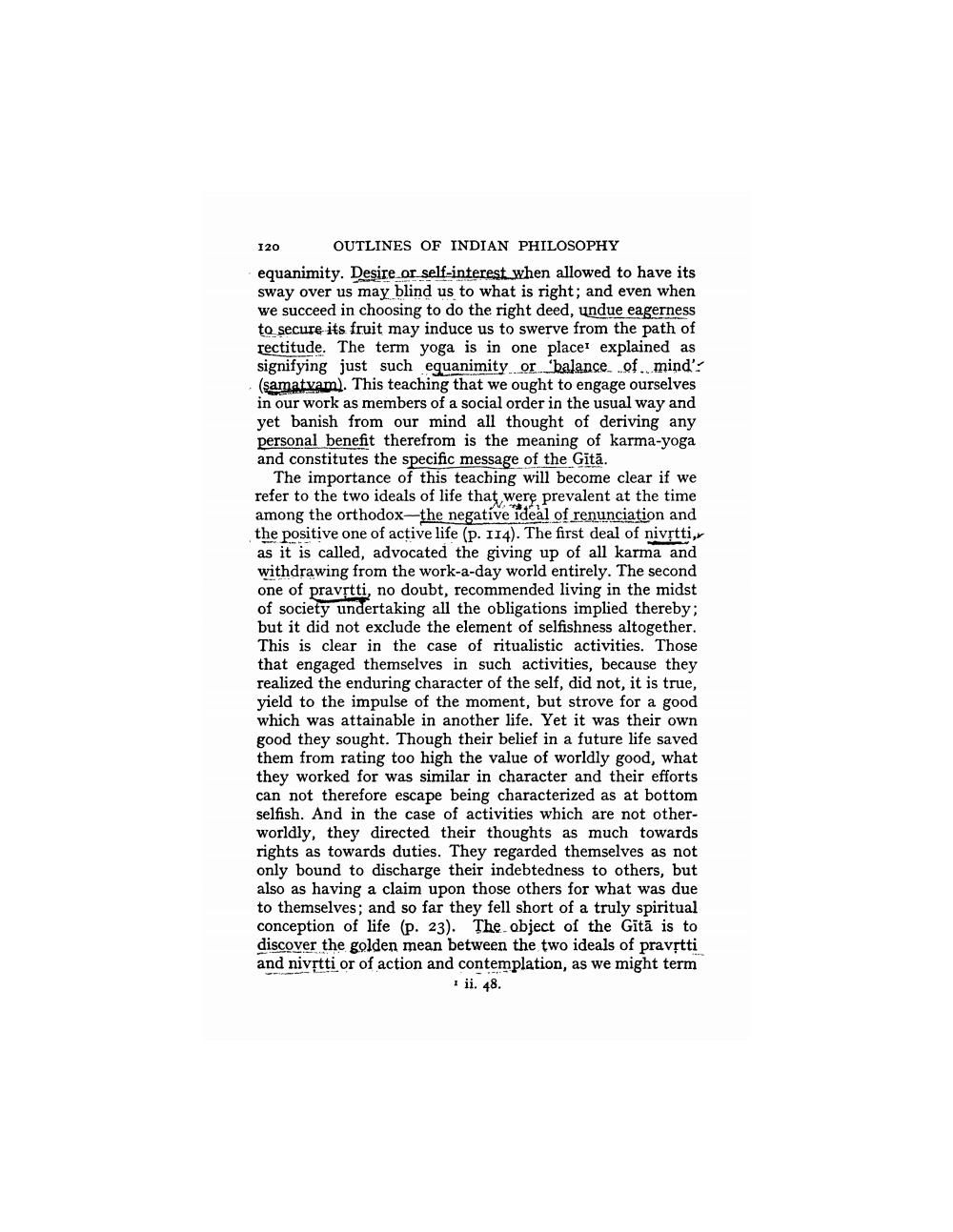________________
120 OUTLINES OF INDIAN PHILOSOPHY equanimity. Desire or self-interest when allowed to have its sway over us may blind us to what is right; and even when we succeed in choosing to do the right deed, undue eagerness to secure its fruit may induce us to swerve from the path of rectitude. The term yoga is in one placer explained as signifying just such equanimity or 'balance of mind': (samatwam). This teaching that we ought to engage ourselves in our work as members of a social order in the usual way and yet banish from our mind all thought of deriving any personal benefit therefrom is the meaning of karma-yoga and constitutes the specific message of the Gitā.
The importance of this teaching will become clear if we refer to the two ideals of life that were prevalent at the time among the orthodox-the negative ideal of renunciation and the positive one of active life (p. 114). The first deal of nivịtti, as it is called, advocated the giving up of all karma and withdrawing from the work-a-day world entirely. The second one of pravrtti, no doubt, recommended living in the midst of society undertaking all the obligations implied thereby: but it did not exclude the element of selfishness altogether. This is clear in the case of ritualistic activities. Those that engaged themselves in such activities, because they realized the enduring character of the self, did not, it is true, yield to the impulse of the moment, but strove for a good which was attainable in another life. Yet it was their own good they sought. Though their belief in a future life saved them from rating too high the value of worldly good, what they worked for was similar in character and their efforts can not therefore escape being characterized as at bottom selfish. And in the case of activities which are not otherworldly, they directed their thoughts as much towards rights as towards duties. They regarded themselves as not only bound to discharge their indebtedness to others, but also as having a claim upon those others for what was due to themselves; and so far they fell short of a truly spiritual conception of life (p. 23). The object of the Gītā is to discover the golden mean between the two ideals of pravștti and nivștti or of action and contemplation, as we might term
1 ii. 48.




